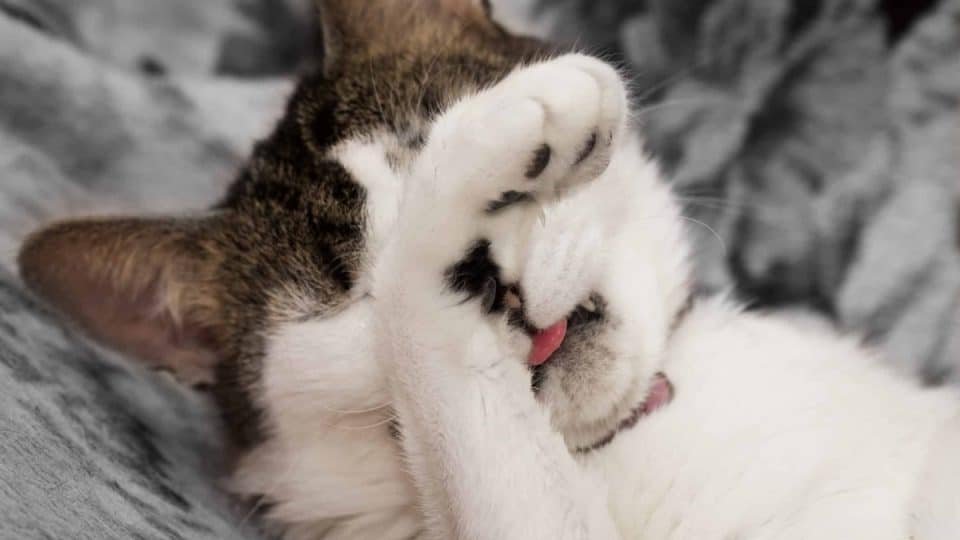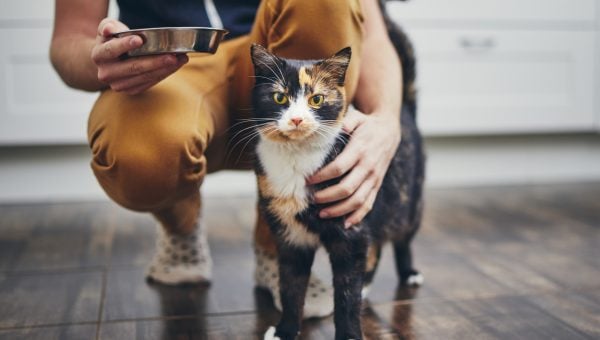- Not a substitute for professional veterinary help.
Your cat probably spends a lot of time grooming. In fact, according to Cornell University College of Veterinary Medicine, cats spend up to 50% of their days cleaning and licking themselves. Yet, despite their dedication to cleanliness, our cats can still smell bad. Cats may stink for many reasons, ranging from natural scents and bad breath to infections or digestive issues.
Let’s look at the factors that lead to bad-smelling cats and how pet parents can tackle them.
Cat Mouth Smells
Dental disease
Cavities, decay, and gum inflammation can affect felines and cause unpleasant odours. In addition, cats can experience bad breath from an inflammatory oral health condition called ‘stomatitis.‘
Brushing your cat’s teeth (yes, it is possible!) or giving them mouth-friendly treats can help prevent dental diseases.
Ulcers or lesions
One of the leading causes of ulcers and lesions in cats is a nasty condition called feline chronic gingivostomatitis. Aside from sore and bleeding lesions, another symptom is bad breath. This occurs “because the oral inflammation makes the cat susceptible to bacterial infections of the mouth,” explains Louis DelGiudice, DVM, DACVECC, national emergency specialty director at AmeriVet Veterinary Partners.
Dental disease, environmental stress, and a weak immune system can trigger feline chronic gingivostomatitis.
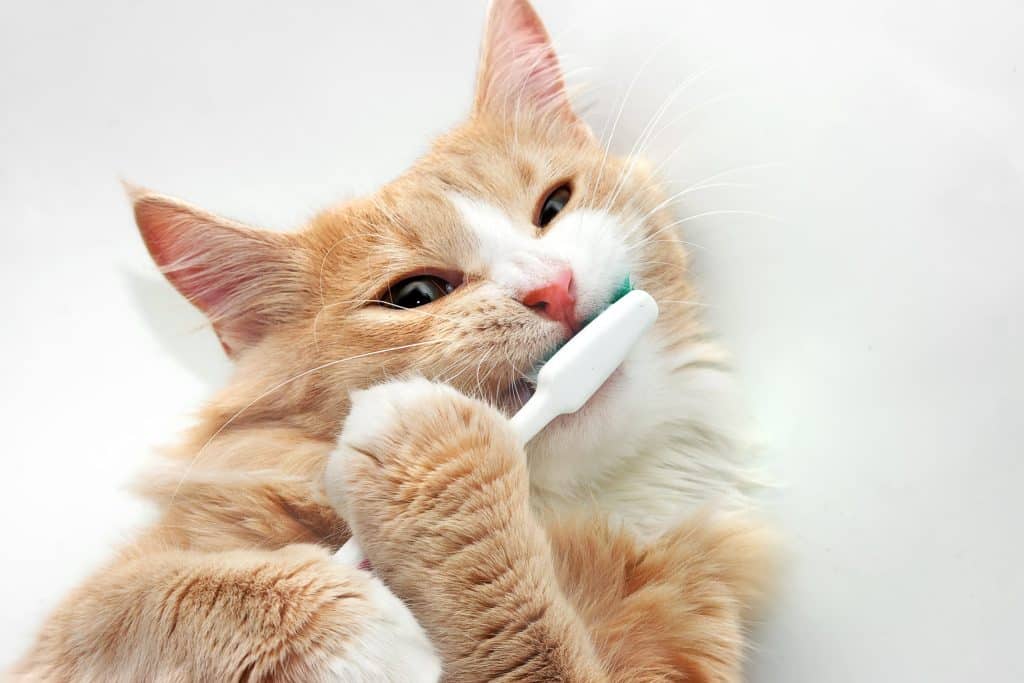
iStock/Inna Postnikova
Cat Rear End Smells
Farting
Like humans, cats fart (although usually not as frequently). A couple of the leading causes of gas in felines are digestive upsets or swallowing too much air.
Diarrhoea
If your cat’s faeces looks runny or very soft, it’s likely a sign of diarrhoea. You’ll also notice that it smells awful. It usually occurs when your cat eats something that upsets their stomach and often passes within a day or two. But, speak with your vet if it lasts longer, as it can sometimes indicate something more serious.
Anal gland secretion
Cats use scent to mark their territory. One of the ways they release this scent is through the little glands close to their anus. The scent has a very unappealing odour, so you’ll know when it’s been discharged. These anal sac scents, while unpleasant smelling, are an important way for cats to provide information about their age, sex, and reproductive availability.
Perianal fistulas
Perianal fistulas are red, painful lesions in the tissues around the anus. DelGuidice reveals that these “can lead to a foul odour due to tissue infection.” This condition is as unpleasant as it sounds—but, fortunately, DelGuidice says they are uncommon in cats.
Cat Ear Smells
Ear infections
All ear infections can cause a foul odour, states DelGuidice. However, the odour and severity vary based on the type of bacteria or yeast present. Otitis externa, for example, causes inflammation, discharge, and foul odours in the ear canal.
Want to keep ears clean and free from infection and smelly odours? Cat-friendly ear-cleaning products are available to assist with the task.
Ear mites
Ear mites can cause significant problems for cats. When they burrow deep into a feline’s ears, these parasites create a mess of wax and other debris. And, you guessed it, this can smell pretty bad. Unfortunately, cat ear mites won’t go away on their own, so you’ll need to pay a visit to your vet to get them sorted out.
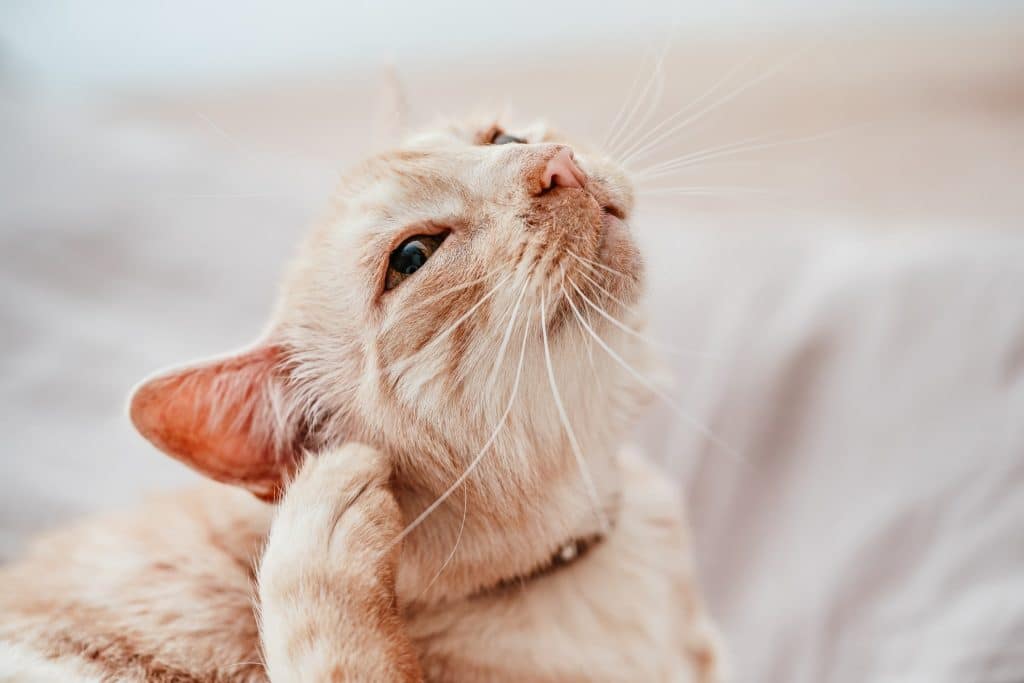
iStock/Lubo Ivanko
Skin Infections & Wounds
Everything from bacteria overgrowth to wounds and allergies can cause problems for a cat’s skin. When left untreated, these may become infected—especially if your feline licks or paws at the area—and lead to nasty-smelling discharges.
Will A Urinary Tract Infection Make My Cat Smell?
When cats get urinary tract infections (UTIs), DelGuidice explains the urine may also have a foul smell. Furthermore, DelGuidice states that UTIs can lead to skin infections of the genital region that can cause odours.
During a UTI, cats might experience symptoms such as painful and increased urination, blood in the urine, and excessive licking of the genitals. Urinary tract infections in cats happen for various reasons, including bacterial infection, stress, behavioural issues, and urinary stones.
How To Get Rid Of Smelly Cat Odours
Regular grooming is the primary way cats rid themselves of nasty odours—but sometimes, it’s just too much for one little tongue to deal with. That’s when it’s time for a bath.
Your cat might need a bath if they’ve had diarrhoea or rolled in something unpleasant. Of course, we all know that (most) cats don’t like water. Fortunately, you can take steps to make bathtime a lot easier, including using non-slip bath mats, making sure claws are clipped beforehand and providing lots of positive reinforcement along the way.
Pet parents can also clean their cat’s bedding to banish bad smells. Did you know you should wash your cat’s bedding once a week? If their favourite blanket or sleeper isn’t the freshest, odours from this could transfer onto your kitty’s coat and make them smell. Parasites and bacteria can also fester in dirty bedding and lead to infections.
Finally, while your cat may not pee directly on themselves, some are prone to urinating in places they’re not meant to. So if your feline pees on your bed, carpet, or laundry pile, there are plenty of surefire ways to eliminate the urine smell.
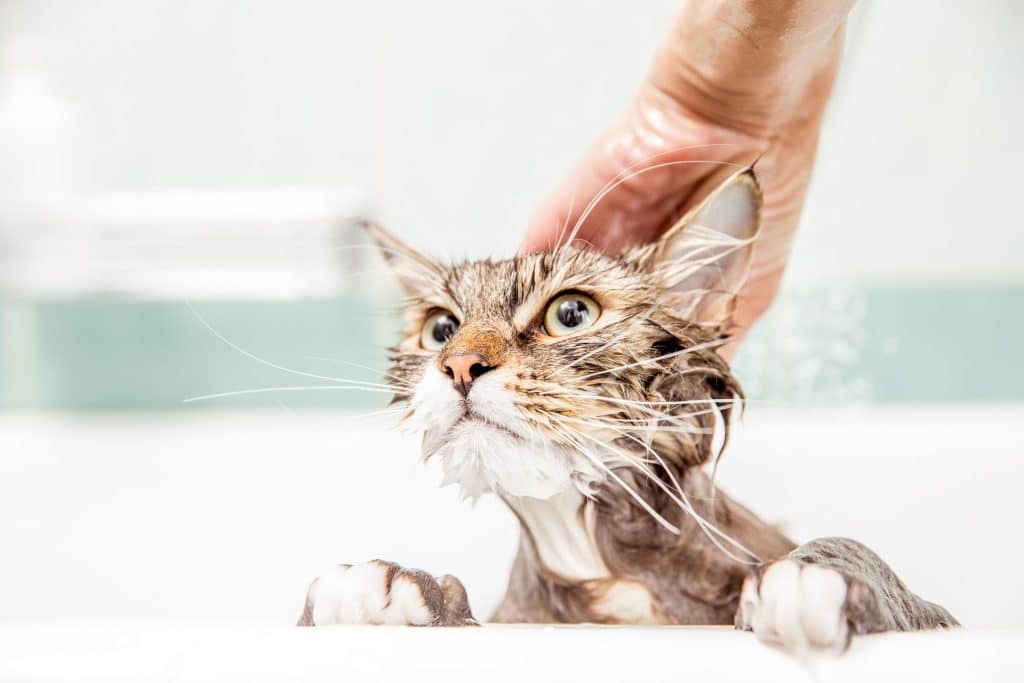
iStock/CasarsaGuru
When To See The Vet For A Smelly Cat
In some instances, it can be easy to tell what’s causing your kitty to smell—but at other times, the task is far more challenging. If you cannot immediately tell what the issue is, it’s a good idea to pay a visit to your vet. After all, if a smell is down to an infection, it’s vital to treat it sooner rather than later.
“If your pet develops a new odour, and you notice signs such as scratching at the ears, frequent use of the litter box, and/or skin lesions, we recommend having your cat seen [by a vet] first,” says DelGuidice. Your vet will conduct a complete examination to ensure that the odour is not due to an underlying health condition, he adds. If they confirm that the root of the smell is bacterial or yeast-related, pet parents can treat infections with vet-prescribed medications.
Most odours can be treated, and your vet is on-hand to help determine the best course of action.
